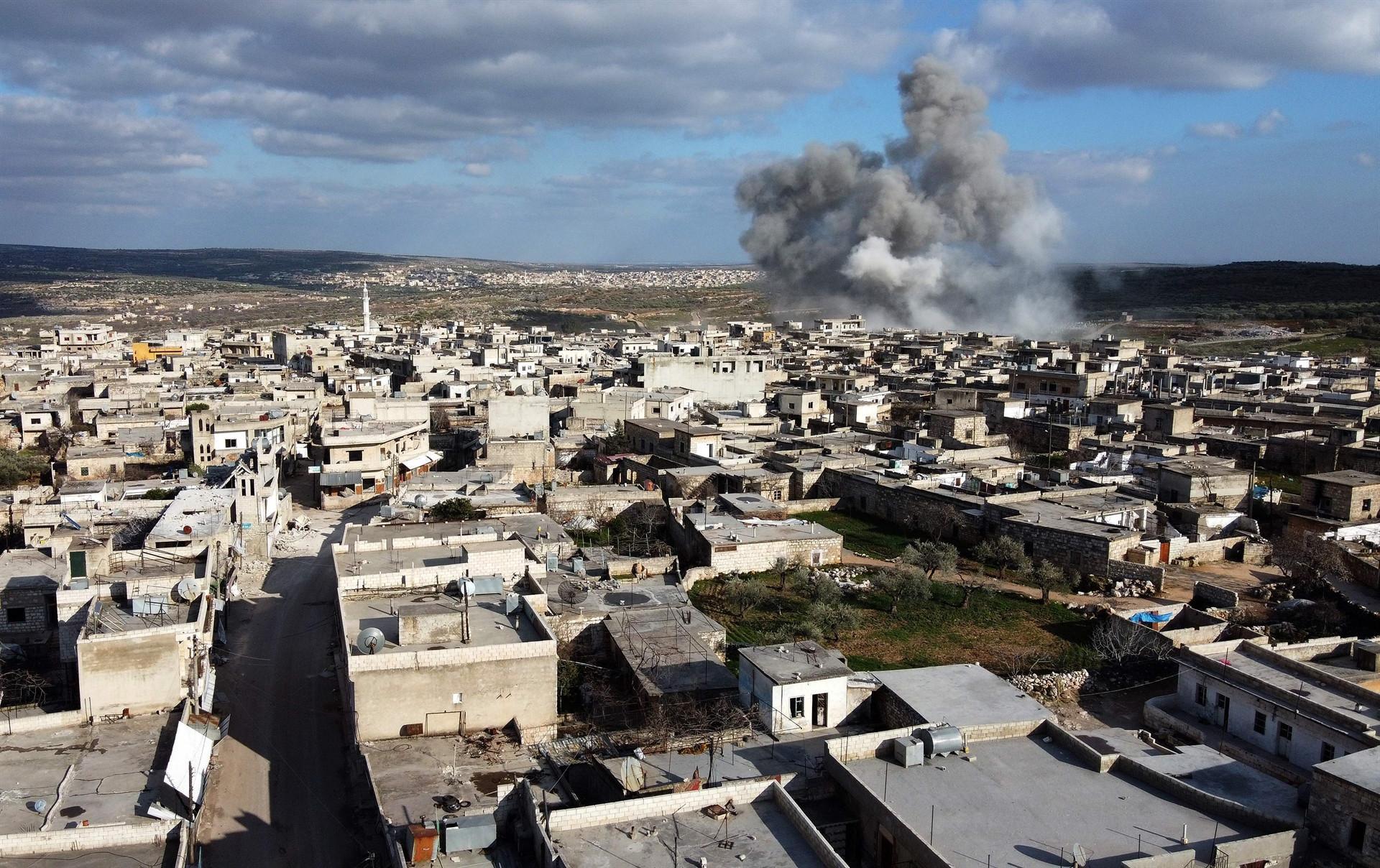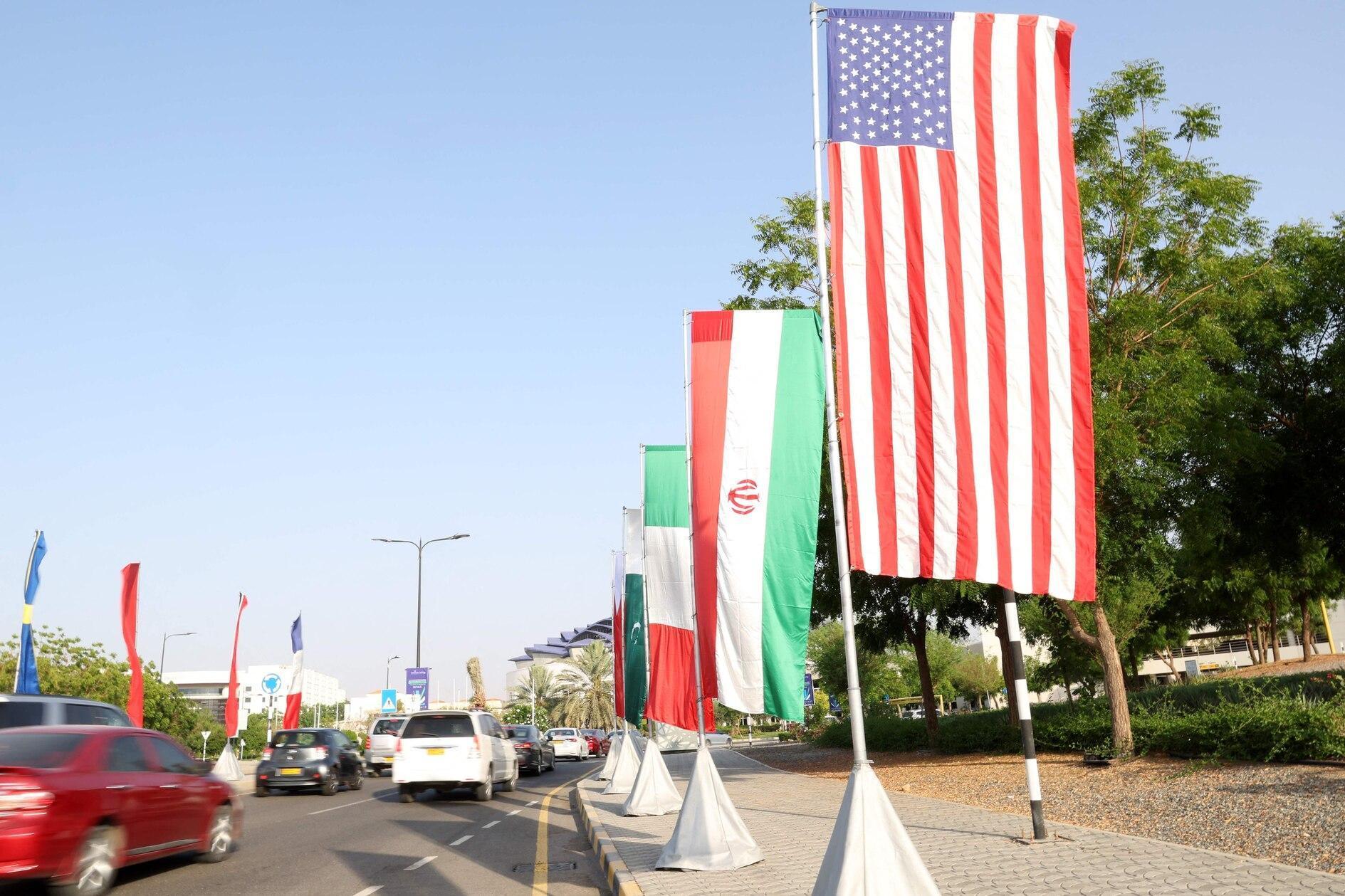Merkel calls for ‘protected zone’ in northwest Syria
BERLIN

This picture taken on on March 2, 2020 shows smoke plumes rising following aerial bombardment on the village of Balyun in the southern part of Syria's northwestern province of Idlib. (AFP Photo)
German Chancellor Angela Merkel on March 2 called for a “protected zone” in northwestern Syria for hundreds of thousands of civilians fleeing the attacks of the Bashar al-Assad regime.
Speaking at a news conference in the capital Berlin, Merkel expressed grave concern over escalating tensions in Idlib, a northwestern Syrian province, just across the Turkish border.
“We need a cease-fire there, we need basically a protected zone for the hundreds of thousands of people that fled towards the Turkish border,” she stressed.
Merkel said, together with French President Emmanuel Macron, they tried hard last week to de-escalate tensions in the region, called Russian President Vladimir Putin to contribute to a cease-fire in Idlib.
She said they would continue their efforts to achieve these goals.
EU-Turkey talks on refugee crisis
In the meantime, Merkel’s spokesman Steffen Seibert said further talks between the EU and Turkey will better address the refugee crisis amid escalating tensions in northwestern Syria.
He said that Europe was well aware of criticisms of Ankara on the implementation of the 2016 EU-Turkey refugee agreement.
“We must talk with Turkey on these issues. We must also talk about the additional concerns and burden due to the hundreds of thousands of displaced people in Syria,” he said, referring to the humanitarian crisis in the northwestern Syrian province of Idlib.
Seibert argued that despite several problems, the EU-Turkey refugee agreement has been successful so far in controlling irregular migration, countering human smugglers and saving human lives in the Aegean Sea.
“The Federal Government remains convinced that the EU-Turkey agreement is in the interest of both sides, it helps both the EU and Turkey, it should be preserved and observed,” he said.
As part of the agreement, the EU had promised €6 billion ($6.8 billion) of aid for 2016-2019 to improve living conditions of more than 3 million Syrian refugees in Turkey. But so far, only €4.7 billion were contracted and €3.2 billion disbursed.
The EU’s bureaucratic hurdles and delays to mobilize promised funds led to sharp criticism by Turkish politicians.
Ankara also criticized its European partners for not fully implementing the 2016 agreement, and backing away from their political commitments.
As part of the deal, the EU had promised to accelerate talks on Turkey’s EU membership and visa-free travel for Turkish nationals within the Schengen area.
Turkey already hosts some 3.7 million migrants from Syria alone, more than any other country in the world.
















